Alabama, The United States of America
Alabama a largely rural state is in poor shape — literally. It has a population of 5 million people 68.4% of them are white and 26.5% of them are black. The state is ranked 46th for income and has a poverty rate of 17% (sixth highest in the US). Alabama has a huge health problem which is race related. All STDs are highest among blacks and Hispanics. According to the latest figures from early 2024 62% of the HIV infected population is black and 28% is white.
In 2020 there were an estimated 17522 HIV infections. 14771 of them were diagnosed with HIV. 11016 of them (75%) receive care. 9006 people of the diagnosed HIV population were living with a suppressed undetectable virus. (61%) Quite a shockingly low percentage when you compare these figures with several hard-hit African countries like for example Zambia.
The first three months of 2024 saw 62 new HIV infections 47 male and 15 female.
Stigma against LGBTQ persons generally is high. Many of these individuals do not identify themselves as gay or bisexual. Young black males in the 15 to 29 age group have been identified as a high-risk group. Black females are approximately 9 times more likely to become infected with HIV than white females.
(Source: alabamapublichealth.gov/ HIV)
The Shelter
Alabama, USA
In what, at first sight, appears to be a quiet suburb of Birmingham you can find the emergency shelter for homeless men and women with HIV. If you don’t have anywhere to go, end up on the street, you come here.
At least if you’re lucky, because only six of the twelve rooms in this emergency shelter are reserved for the HIV community. These six rooms are located in a separate wing of the building so that no one has to guess the status of his roommate and no uncomfortable questions have to be asked.
This clarity sweeps away the entire HIV story in one fell swoop. “Nobody talks about his HIV here and nobody asks about it,” one of the residents says. HIV seems to be the least popular of all the problems in this shelter. Where drink, drugs and theft are spoken about openly, sometimes even leading to a funny anecdote, people prefer not to mention HIV. “I don’t want to come out of the closet, I want to stay in.”
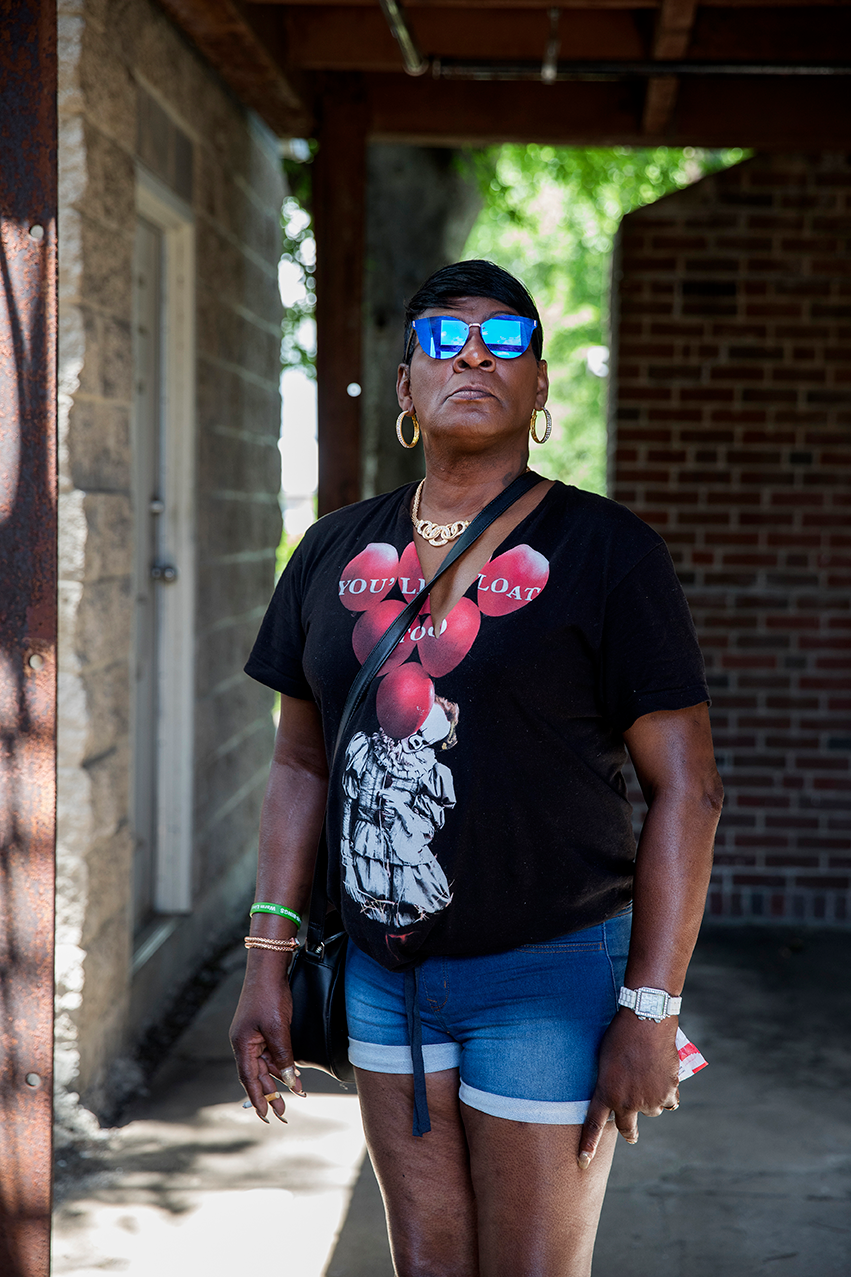
Mimi
60 years old, lives in Birmingham. I‘ve been living with HIV since 1995 and am transgender.
If, like Mimi, you’ve been living with the virus for 24 years, life has plunged all the depths. When she first heard that she was positive she chose denial: “That was my way. No one was allowed to know. “Only after a suicide attempt and many years of silence did Mimi tell her brother. Fortunately, he reacted with kindness.
It’s not easy, living in Alabama’s Bible Belt, where quickly so much misery is seen as a punishment from God. But the church where Mimi goes is good for her, “they accept me as I am with everything that goes with it: me living with HIV, me being transgender. You know, I’ve learned that I’m worth it, people don’t have to put me down.
For the future the most important thing is that I’ll get my own house, and get my life sorted out. There’s a lot of discrimination in Alabama, it’s changing but slowly. I wanna see that change!”
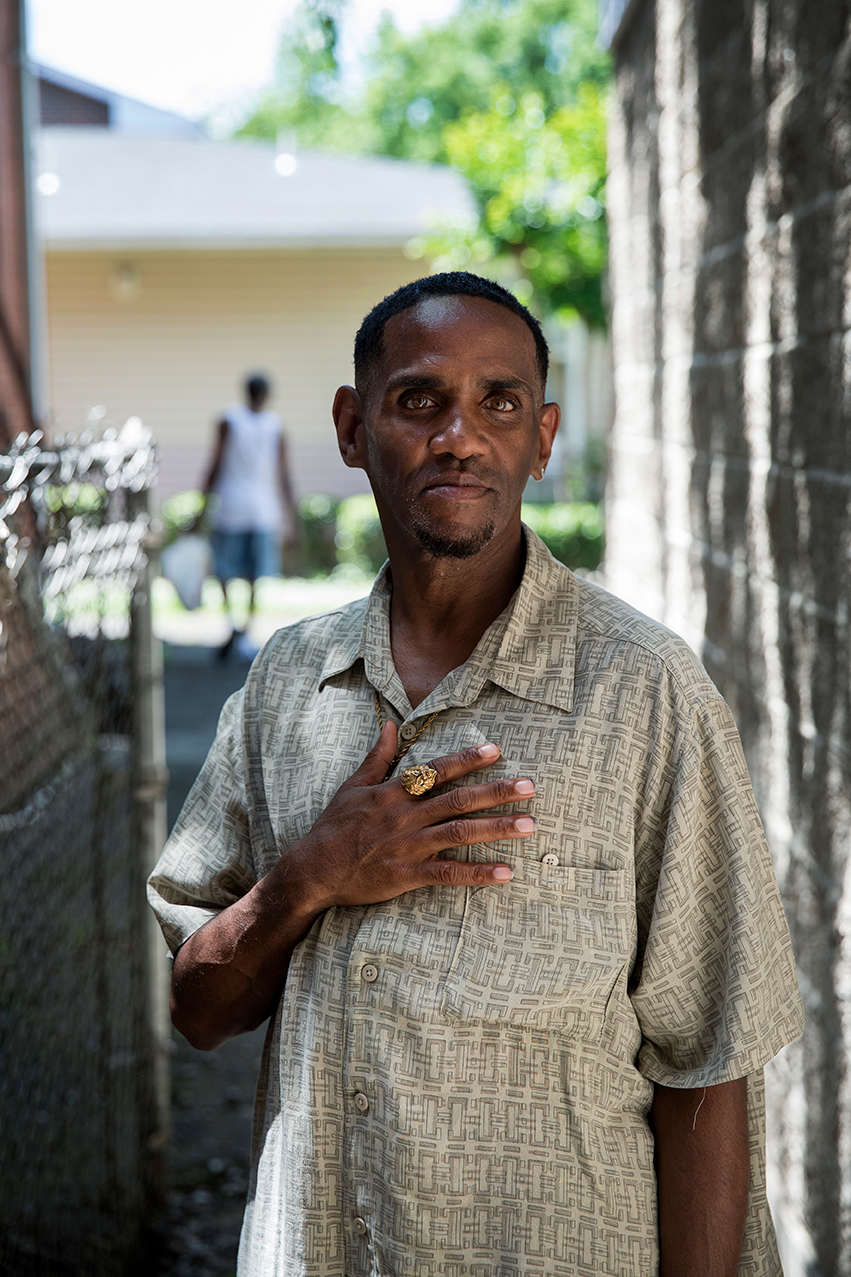
Daniel
54, born in Brooklyn, New York, now living in Birmingham. Daniel has a degree in interior design. Since 1982, Daniel doesn’t live with HIV, but HIV lives with Daniel …
You know: “I like to shop with other people’s money…. that’s what you do if you’re an interior designer, right? “ He laughs and thinks back to the time he still lived in Brooklyn, New York. They were good times. But you can imagine that when you hear in 1982 that you are HIV positive, the light goes out. But he’s still here and medically this is a miracle.
“You know, I have double trouble… I’m fighting not only against HIV but also against my addiction. What gives me strength is my faith in God!”
Nothing stops him from looking optimistically to the future. In 5 years’ time he thinks he’ll be a pastor. With faith to help others, give solace, that’s the most important. “Here in Alabama people are pretty paranoid, but I can help others with my story and with my faith.” His simple and powerful message for the world: “Have more empathy and love! Live and let live! ”
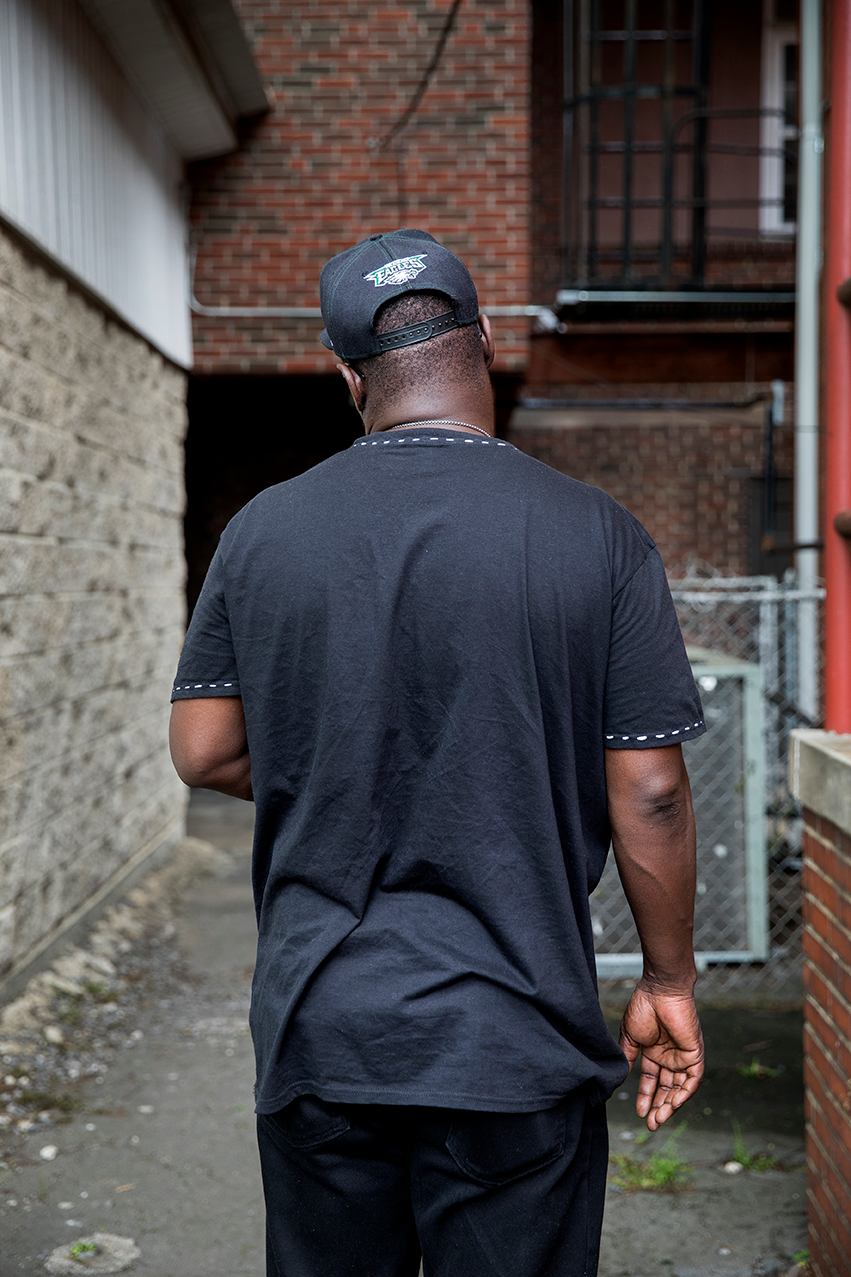
Derrick
48 years old, has lived in Birmingham, Alabama all his life. He’s in a relationship, “we don’t talk about HIV together… No we don’t do that”.
Derrick discovered 15 years ago that he was HIV positive. It was a shock “I was scared and didn’t talk about it. The doctors helped me get in touch with others who were also positive. My friends and family continued to support me.” What would Derrick like in the future? “To tell young people about my life, to support them and help them to make the right choices, something I haven’t always done myself.”
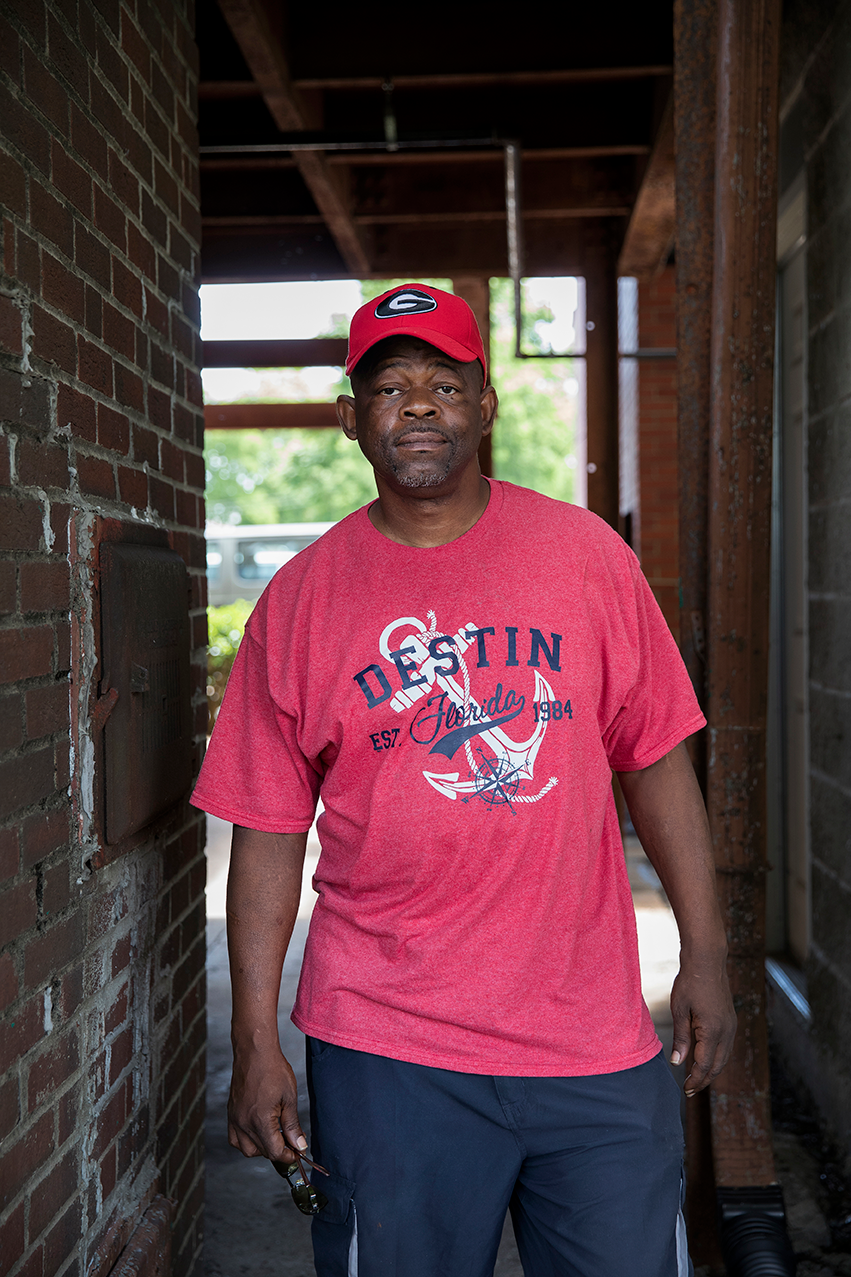
John
55 years old, first lived in Florida and now in Alabama. John’s family has always been there for him.
Because John used drugs, he decided to take the HIV test: “When the doctor came and said I was HIV positive, the lights went out. I was afraid of the negative reactions. I felt like an outcast”. Now 10 years later John sees it differently: “You know I am accustomed to stigma. The way I see it: you get thrown in this arena that you didn’t really choose. But in my life, I want to change the curse into a gift. I am accepting my status, I am feeling ok, healthy, and by sharing my story I want to give hope to others.”
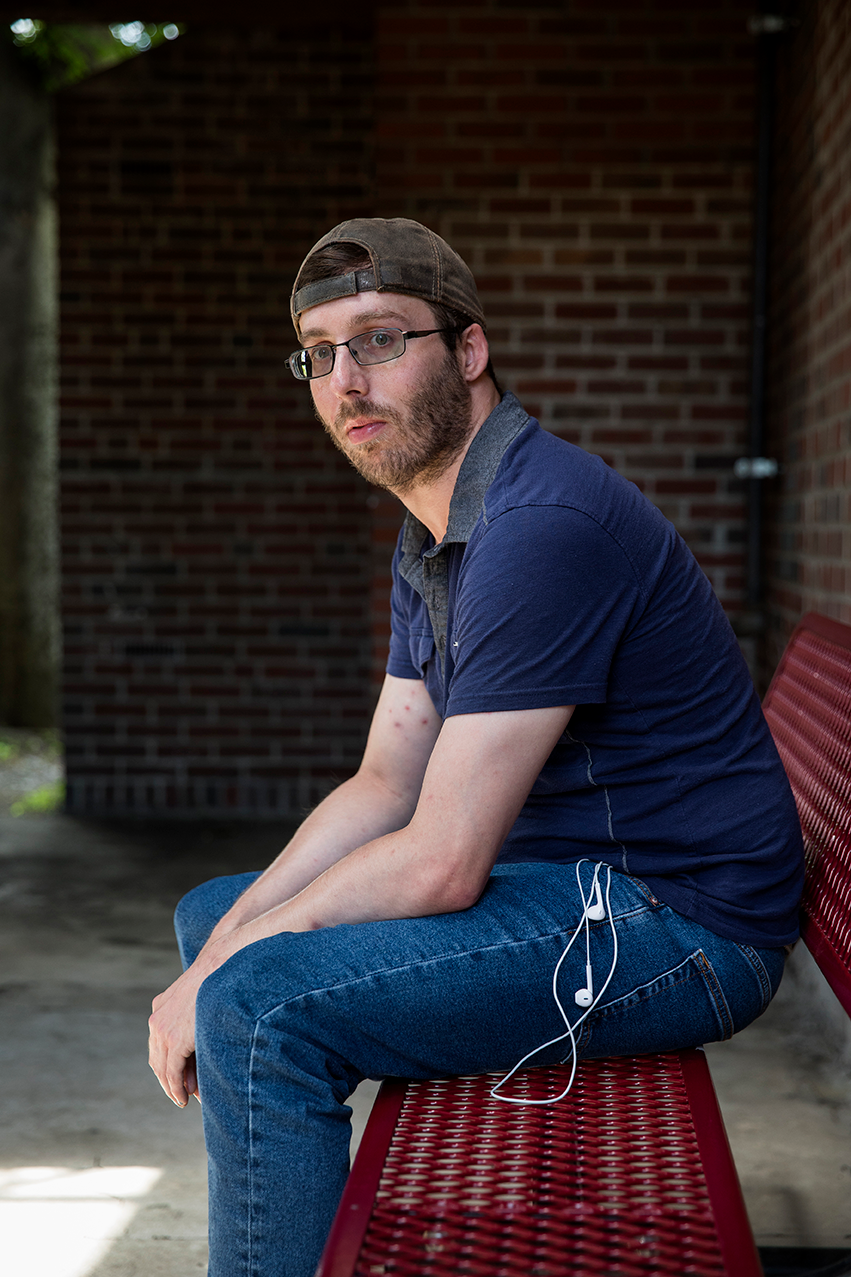
David
33 years old, lives in Birmingham. Above all David now thinks ahead, the future offers hope.
“In 2011 I fell ill, the doctors first thought it was flu, but it was HIV. I lost a lot at the time … my girlfriend, my job. But my family was there for me. People often don’t know enough about HIV … I was scared too. To cope, I turned to drugs and alcohol. Now I am in rehab, it’s getting better again, I dare to think about the future again. In ten years ‘time I hope to be married and have dogs and cats and a good job. This all happens to me to make me a stronger person: Hope is one thing I am not giving up.”
Photo’s by Vincent van den Hoogen
